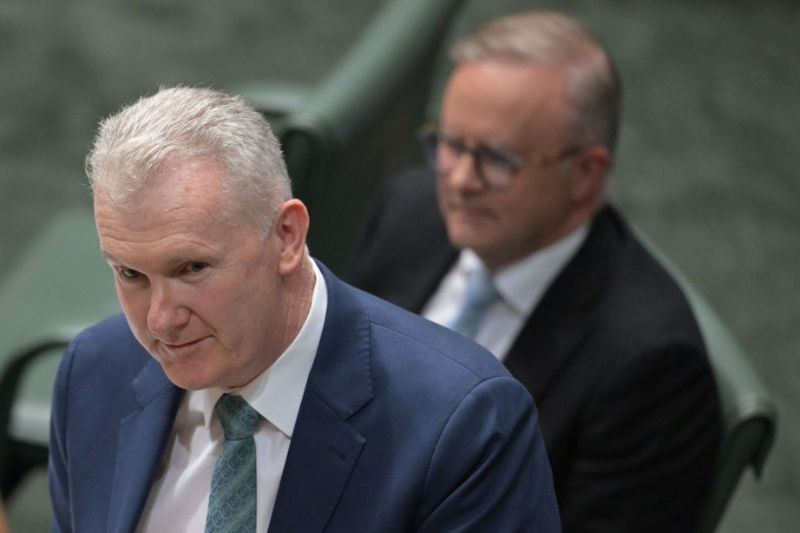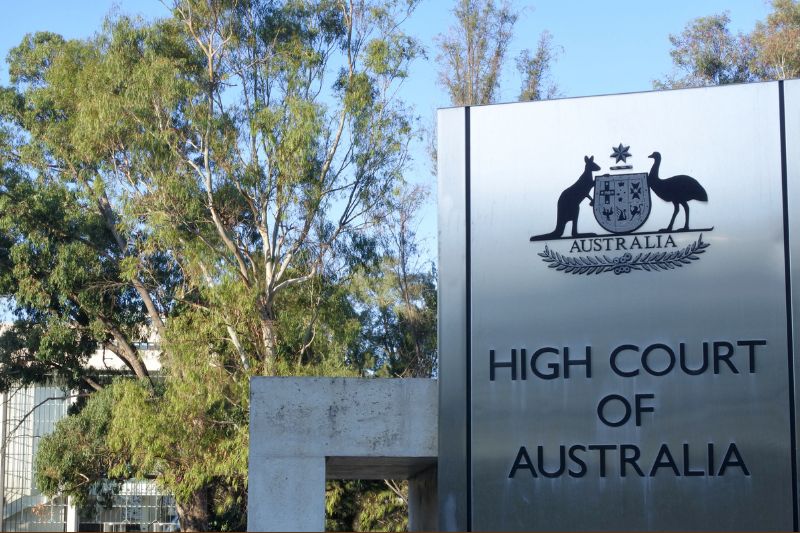Keywords: Labor
There are more than 24 results, only the first 24 are displayed here.
Become a subscriber for more search results.
-

INTERNATIONAL
- Peter Craven
- 24 January 2025
In a second presidency begun with a spate of brash decrees — annexing Greenland, scrapping birthright citizenship — and forging odd alliances with billionaires, Donald Trump is already defying expectations. How did we reach this unsettling moment, and can America endure it?
READ MORE 
-

AUSTRALIA
- Claire Heaney
- 13 December 2024
For years, Coles and Woolworths have been accused of squeezing both producers and shoppers in equal measure. With new regulatory changes on the horizon and a web of inquiries underway, the supermarket duopoly finds itself under unprecedented scrutiny. But will these reforms actually lower grocery bills?
READ MORE 
-

RELIGION
- Bill Uren
- 11 December 2024
A contentious graduation speech at Australian Catholic University laid bare divisions between traditional Catholic values and modern sensibilities. The backlash, marked by audience walkouts, underscores broader challenges facing the Church.
READ MORE
-

AUSTRALIA
- Peter Craven
- 05 December 2024
Tom Hughes, who passed away at 101, was a towering figure in Australia’s legal and political history. A barrister of dazzling skill, an Attorney-General with a penchant for reform, and a man of unshakable conviction, Hughes combined wit, charm, and grit to shape justice and inspire a legacy beyond party lines.
READ MORE
-

AUSTRALIA
- Andrew Hamilton
- 04 December 2024
Australia’s recent immigration detention laws reveal a stark shift in governance, prioritising power over human dignity. As families face indefinite separation and bureaucrats enforce policies with brutal efficiency, the High Court's rebuke offers a glimmer of ethical resistance. But can such laws truly claim legitimacy in a democratic society?
READ MORE
-

AUSTRALIA
- Frank Brennan
- 04 December 2024
1 Comment
When High Court rulings challenge government policy, they usually prompt reflection and refinement. But for the Federal Government, a recent decision on non-citizen rights has sparked a legislative overreach, mirroring the Opposition’s hardline stance.
READ MORE
-

RELIGION
- Justin Glyn
- 30 November 2024
2 Comments
The Synod on Synodality has quietly rewritten the Church’s relationship with disability, shifting from a legacy of marginalisation to a vision of equality and dignity. This historic move acknowledges past failings while championing the rights of disabled people as full participants in faith and society. But does the rhetoric match reality?
READ MORE
-

AUSTRALIA
- Erica Cervini
- 25 November 2024
4 Comments
Once seen as the champions of climate action and progressive politics, the Greens are now grappling with internal chaos, falling poll numbers, and a disillusioned voter base. From controversies over identity politics to disputes about housing and Middle East policies, the party is facing a critical question: What do they stand for today?
READ MORE
-

EDUCATION
- Erica Cervini
- 14 November 2024
4 Comments
At an ACU graduation event, students walked out in protest as Joe de Bruyn gave an address condemning abortion, single-parent IVF, and same-sex marriage. The event highlights tensions for Catholic institutions trying to balance traditional Catholic values while also embracing often opposing perspectives a diverse, pluralistic society.
READ MORE
-

AUSTRALIA
- Andrew Hamilton
- 08 November 2024
1 Comment
The story of Race Mathews’ career will be an antidote to despair about politics and politicians. It underlines the possibilities of politics, showing how it can be more than a job or a career. It can be a calling to imagine a more just society and ways of building it.
READ MORE 
-

AUSTRALIA
- Frank Brennan
- 08 November 2024
7 Comments
Last week, Australia’s High Court blocked government restrictions on non-citizens with criminal records. As Parliament scrambles to impose new restrictions, Chief Justice Stephen Gageler’s court remains steadfast against policies deemed discriminatory and excessively punitive.
READ MORE
-

AUSTRALIA
- James Massola
- 07 November 2024
10 Comments
The analysis of how Trump achieved a famous victory will continue for years to come. The more germane questions now are what does this result mean for Australia’s economic, defence, trade and foreign policy, and what lessons (if any) are there for Anthony Albanese and Peter Dutton?
READ MORE